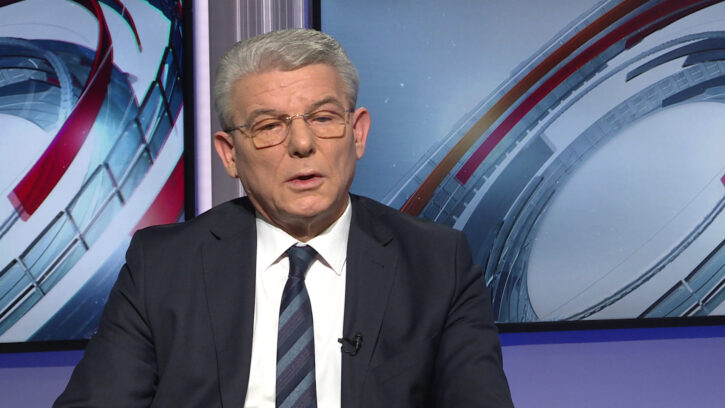
The main Bosniak party asked the Constitutional Court last year to check whether the name of the Serb-majority entity within the country, Republika Srpska (RS), is in line with the constitution because it only contains the name of one of the ethnic groups living there, the Bosniak member of the tripartite told N1 on Wednesday.
The initiative, which came at the beginning of last year from the Party for Democratic Action (SDA), was in no way an attempt to attack the 1995 Dayton Peace Agreement which ended Bosnia’s war and contains the Constitution, as Bosnian Serb leadership argued, Sefik Dzaferovic said.
N1 asked Dzaferovic what the point of it was and whether changing that name would improve the lives of Bosniaks living in the semi-autonomous entity.
“The name Republika Srpska is, for all of those who are not Serbs (…), discriminatory in itself. How can you argue that one part of Bosnia and Herzegovina, one entity in which everyone must be equal regardless of their ethnicity or religion, can be that when its name only contains the name of one of the peoples living there?” Dzaferovic asked.
He argued that although the name Republika Srpska is in line with the Constitution, Bosnia also signed the European Convention on Human Rights which guarantees equal rights for all citizens.
When the SDA asked the Constitutional Court to look into the matter, “we were immediately accused of attacking the Dayton Peace Agreement,” he said, adding that his party only wanted to “use the mechanisms that are defined within the Dayton Agreement.”
“What is not permitted in the Dayton Agreement is attacking the sovereignty and territorial integrity of the country, nobody has the right to do that,” he said, referring to his Bosnian Serb colleague, Milorad Dodik, who has often advocated for Republika Srpska to secede.
Dzaferovic spoke about the atmosphere within the Presidency and the approach of his Bosnian Croat and Bosnian Serb colleagues, Dodik and Zeljko Komsic.
“Two (Presidency members) are completely committed to protecting the interests of Bosnia and Herzegovina, to defend Bosnia, and one of them is obviously not completely committed to that but also has some other agendas,” Dzaferovic said.
He added that the situation “would be completely different” if Dragan Covic, the leader of the strongest Bosnian Croat party, the Croat Democratic Union (HDZ BiH), would have been elected to the post of the Bosnian Croat Presidency member instead of Komsic.
Covic is a political ally of Dodik.
“I would constantly be outvoted,” Dzaferovic said.






